About us
The School of Philosophy Scotland
School of Philosophy Scotland
We are the School of Philosophy Scotland, a regional branch of the School of Philosophy and Economic Science, we offer Practical Philosophy classes at our philosophy centres in Glasgow and Edinburgh.
The School is a registered educational charity, founded in 1937, whose principal object is to promote the study of natural laws governing relations in human society.
- Educational charity, founded in 1937
- Study of natural laws governing relations in human society
- Aim to help individuals lead a fuller, richer and more useful life
Our aim is to help individuals lead a fuller, richer and more useful life whilst evolving the spiritual aspect of their being in accordance with natural laws.
To watch a short 7 minute video of the origins and history of the School please below:
The aim of philosophy is to set people free; free from pressure and free from worry; free to grow, and free to be themselves.
The School of Philosophy exists to help you create sustainable happiness. For those seeking answers to life’s big questions, we share knowledge and practical tools to help you to lead a satisfying, happy life through in person evening and daytime classes in Glasgow and Edinburgh and online classes via Zoom.
Our introductory courses in Practical Philosophy explore how philosophic wisdom, accumulated over millennia from the world’s philosophic and religious traditions, can be applied effectively in our everyday lives.
Behind their rich diversity, and when put into practice, many of the great world traditions are found to display a remarkable underlying unity. It is this unity that provides the starting point for our study journey.





Advaita
Advaita is a term from the Sanskrit language coined by the 7th century Indian sage Shankara that means; non-dual, not-two, i.e. one, unity.
Advaita is a ‘golden thread’ that runs through most of the worlds major wisdom traditions.
For instance, in Buddhism it is expressed as Zen, in Judaism it is found in the teaching of the Cabalah, it is found in Gnostic Christianity from the works of the early desert fathers and medieval mystics. In Islam it is Sufism, in Taoism it is the Tao itself, in the Indian tradition where it expressed most profoundly it is the philosophy of Vedanta.
It can also be found implicitly in Plato, the American Transcendentalists movement and from relatively contemporary teachers like Alan Watts and Eckhart Tolle.
Wonderful classes

The present moment

Very practical

